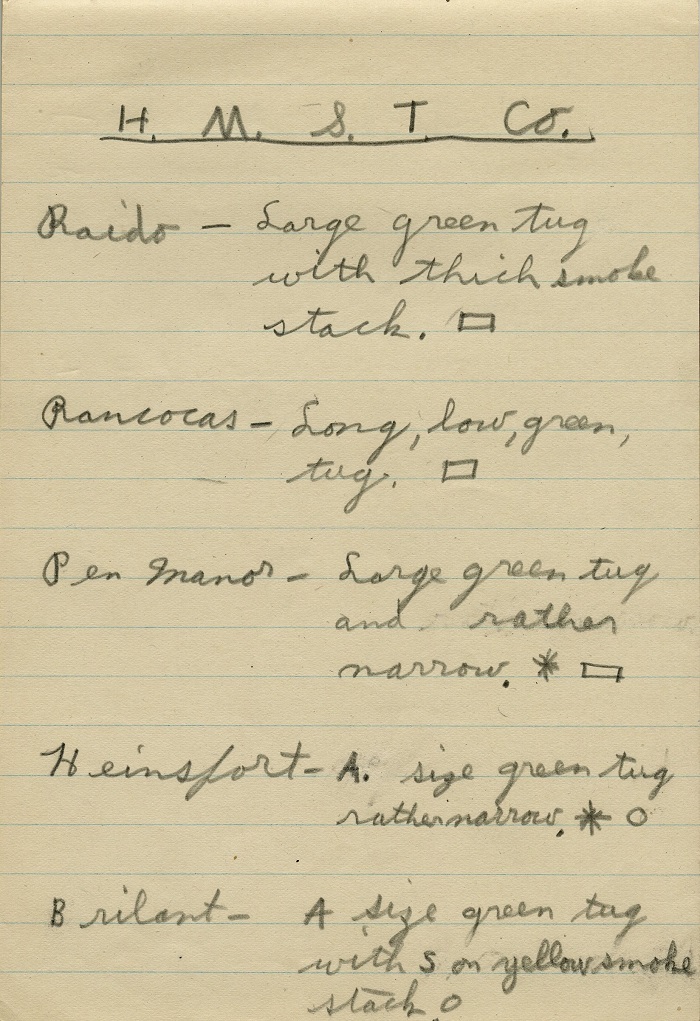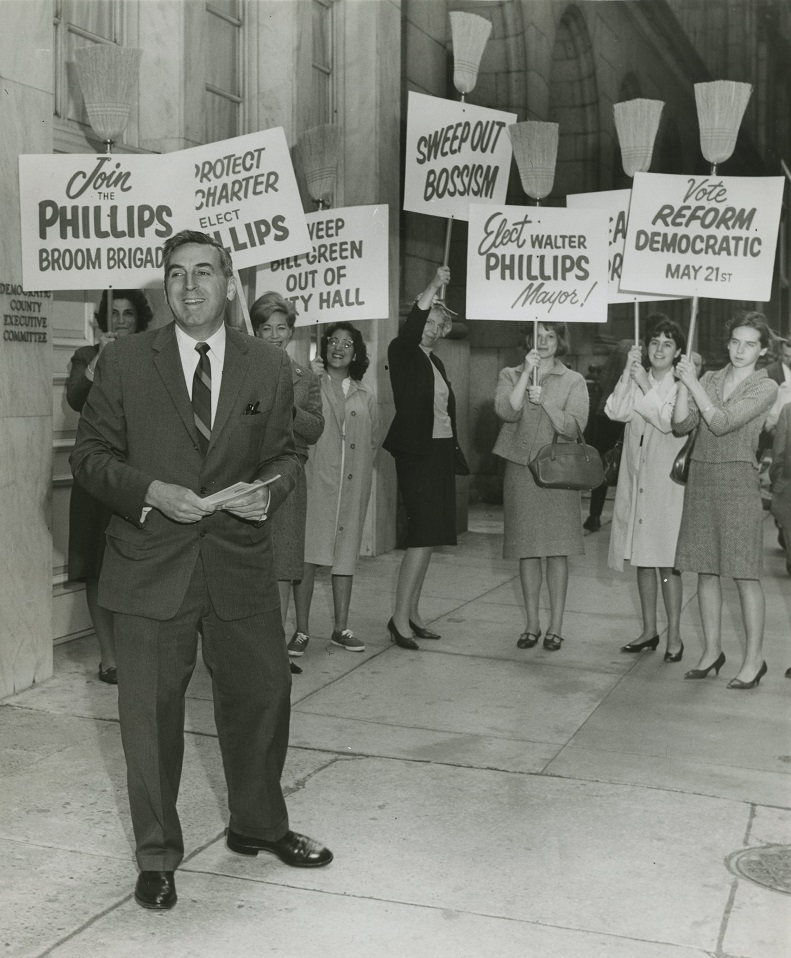
Walter M. Phillips, Sr. (1912-1985) was active in Philadelphia civic affairs for more than thirty years, particularly during the period of the 1940s-1960s, which was known as the “Philadelphia Renaissance.” During this time, political organizers worked for reform of what was seen as an immensely corrupt city government. While Phillips was an enormous political presence behind the scenes, he never held a political office, and by all accounts his reticent personality kept his significant role in the Philadelphia reform movement from wider renown. However, noted architect and city planner Edmund Bacon once called Phillips “the greatest single figure in the renaissance.”
A graduate of Episcopal Academy, Princeton, and Harvard Law School, Phillips was a chief organizer of the City Policy Committee, President of the Citizens’ Council on City Planning, Board Member of the Greater Philadelphia Movement, President of the Philadelphia Housing Association, Executive Secretary with the Delaware River Basin Advisory Committee, Trustee of Lincoln University, Director of the Honey Hollow Watershed Association, and Board Member of the Committee of Seventy. He managed Joseph Clark’s successful race for Mayor of Philadelphia in 1951, served in Clark’s cabinet as City Representative and Director of Commerce through 1955, and was the (unsuccessful) reform candidate against Mayor James Tate in the 1963 Democratic primary election.

After retiring, Phillips initiated an oral history project, and, between 1974 and 1980, interviewed approximately 160 of the local civic and government leaders with whom he had worked. The interviews generally discuss Philadelphia city government and history between the late 1930s and the 1970s.
The Special Collections Research Center holds Phillips’ personal papers as well as cassette tapes, transcripts (many of which are now available online), and background information from his oral history project. His papers document his life, career, and the nature of civic decision making at the policy level in mid-twentieth century Philadelphia. In addition to records from and related to the many Philadelphia organizations and networks in which Phillips was involved, there are also personal items, such as family photos and a diary of Phillips’ 1936 trip to the Yukon.
–Katy Rawdon, Coordinator of Technical Services, SCRC